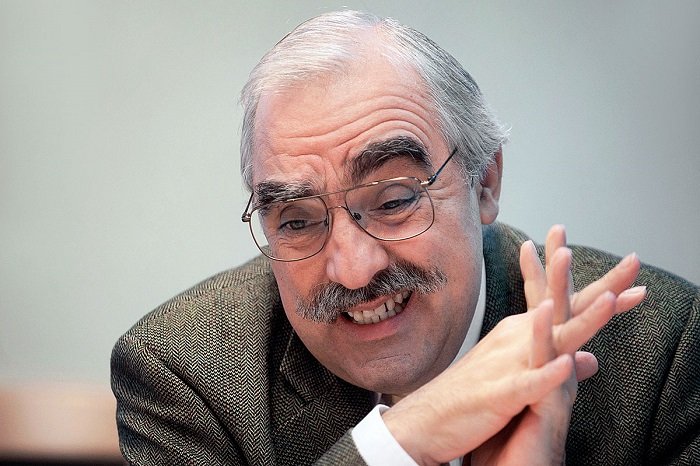Lajos Bokros, the finance minister of the former Horn government, considers the introduction of the 13th monthly pension to be pointless and unnecessary, and the utility reduction to be one of the most harmful measures. Lajos Bokros explained that since no one in Hungary paid the 13th monthly pension contribution, no one is entitled to the 13th monthly pension either.
Lajos Bokros, a lecturer at the Vienna-based CEU, gave an interview to Népszava. During the conversation dissecting the situation of the Hungarian economy, the finance minister of the former Horn government explained:
according to him, the current cabinet offered overly large and universal general budget support instead of targeted budget support.
A good example of this is the "repayment moratorium, which is completely unnecessary and harmful, because it is absolutely not true that everyone suffered from a lack of income during that period and was unable to pay the current interest rates and the due repayment". He added: "nationalists do not understand this".
He complained that the economy is also being stimulated with the means of monetary easing, since interest rates are kept very low. As he put it:
"budgetary support for those groups and individuals - temporarily for six or nine months - that were directly affected by the recession caused by the epidemic would have been more than enough. We should only have helped those working in hospitality and tourism and entrepreneurs".
Lajos Bokros also disagrees with the government's wage increase policy, which he cited as an example of "irresponsible and unnecessary fiscal overspending". He stated: “it is a mistake to adjust wages to prices. Their increase must be parallel to the increase in productivity." He added:
"The introduction of the 13th month pension was also pointless and unnecessary. This is part of the budget overspending. The pension is not a means-tested social benefit, but an expectation acquired in an insurance system. It is based on who paid how much in contributions. And since no one in Hungary paid the 13th monthly pension contribution, no one is entitled to the 13th monthly pension either".
According to Lajos Bokros, if the actors of the economy see that prices are increasing, they expect this to happen, which acts as a self-fulfilling prophecy and changes the behavior of producers and consumers. Consumers bring their purchases forward, demand continues to grow, and savings decrease at the same time. In order for inflation to increase, of course, it is also necessary for the price increases to be accepted and confirmed by the market, which happened in our country as a result of the extremely exaggerated money creation.
Lajos Bokros would introduce the euro as soon as possible. As he put it: "Our country's primary interest is joining the Eurozone as soon as possible, which should have happened ten years ago. Failure to do so caused enormous damage to the country (…) The failure to introduce the euro is also the fault of quite a few economists, who made the Hungarian government believe that monetary independence is beneficial for us. However, in a small, open country with a fully convertible currency, this never applies, so there is no advantage.”
Regarding price fixing, the former finance minister of the Horn government said that it "recalls the period of socialism". He added: on the one hand, he considers it "clearly harmful" because it creates obstacles for the normal operation of supply chains. On the other hand
"cheap gasoline does not support the poor, but the rich and middle class. Those who take the time to refuel every day will receive much more support than those who only refuel once a week or perhaps monthly. If you don't have a car, you get nothing. Here, therefore, it is a measure that supports those with higher incomes against those with lower incomes".
Lajos Bokros has a similar opinion about utility reduction: "one of the most harmful measures in Hungary. It distorts production and causes serious losses to the energy supply companies, which are in tatters and do not develop or invest. Investments to improve energy efficiency have fallen behind. Here, too, they support the consumption of the rich".
According to Bokros, after the elections, they will certainly start cutting utilities, because the "losses are starting to reach a level that could destroy both the budget and the basic supply. The situation is untenable". He added: "the Russian invasion of Ukraine made the trouble even worse. We don't know how long the war will last, but regardless, I believe that the world around us will change completely. Namely, for a long time, even for a long time. Quite a few signs of this are already showing up. The European Union, if not in a short period of time, but within 10-15 years, will do everything to eliminate Russia's energy dependence, which will require a huge amount of investment, and Hungary cannot be an exception. But this requires a different approach. If we take it seriously that we will mainly use renewable energy, it is worth mentioning that they are more expensive than gas and oil burning. This means that there is no room for any kind of overhead reduction. It is a dream to believe that energy will be cheap in the next 15-20 years. The extent of the price increase cannot yet be estimated, everything depends on what technology will be used, said Lajos Bokros in an interview with Népszava.
Featured image: MTI













